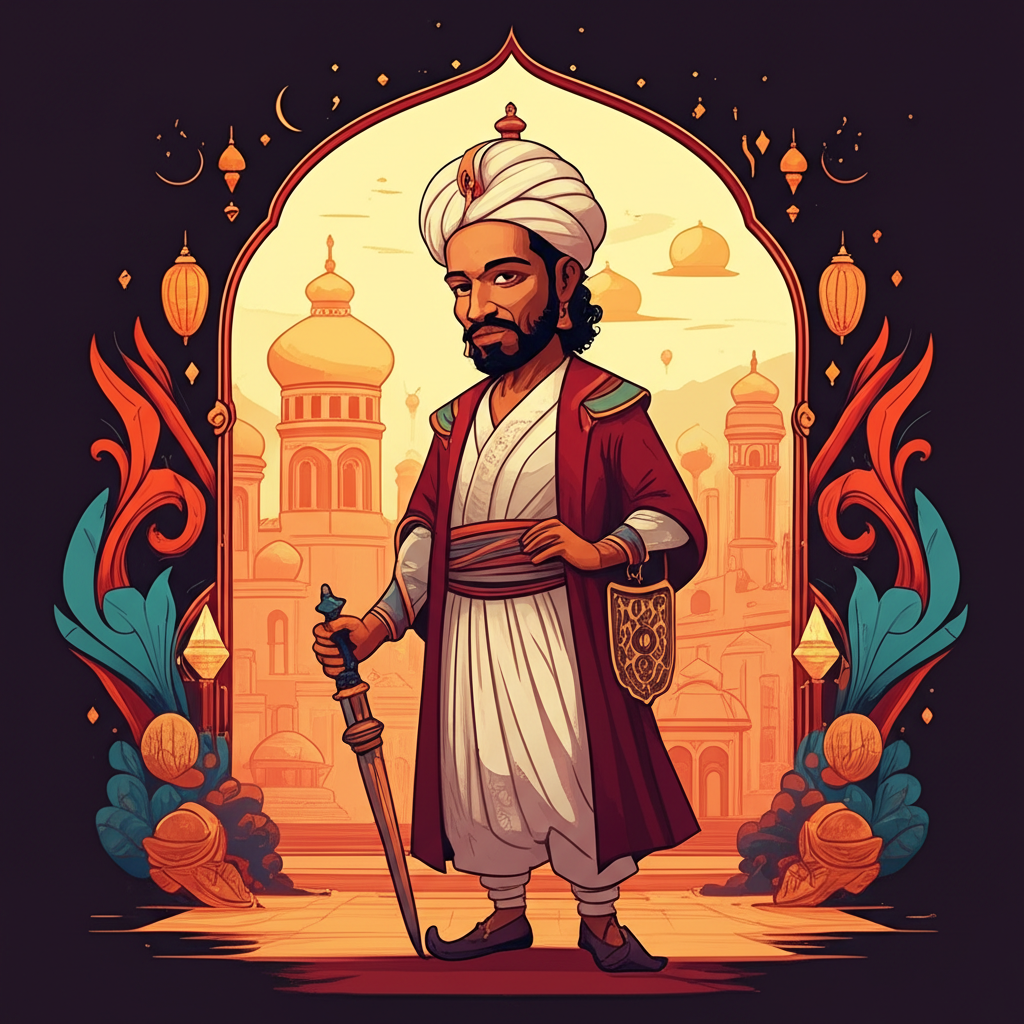
The vast, undulating dunes of the Arabian Peninsula have long been a cradle for stories, tales whispered by the firelight, passed down through generations. Among these, the legend of the City of Brass, and its enigmatic prophecy concerning the port city of Basra, stands as a testament to the rich tapestry of ancient Arabian folklore. This is not a historical account of a tangible place or event, but rather a traditional narrative, woven from the threads of imagination and the cultural worldview of the people who conceived it.
The era in which such myths likely took root was a time when the world was perceived as a place teeming with unseen forces, where the harsh realities of desert life – the scorching sun, the unpredictable sands, the vast, star-dusted nights – were often imbued with supernatural significance. Life was a delicate balance, and understanding the world often involved interpreting omens, understanding the whispers of the wind, and recognizing the power that lay beyond the visible. The Arabian Peninsula, a crossroads of trade and culture, was a fertile ground for the exchange of stories, each contributing to a collective oral tradition that sought to explain the mysteries of existence, from the creation of the world to the fate of humankind.
Central to the myth of the City of Brass is the city itself, a place of immense power and mystery, often depicted as a magnificent, opulent metropolis built entirely of gleaming brass. It was said to be hidden deep within the unforgiving desert, guarded by powerful djinn, or spirits, and imbued with an otherworldly radiance. The brass, a metal known for its durability and sheen, symbolized not only wealth and grandeur but also an unnatural, almost magical permanence. The djinn, beings of smoke and fire, were seen as potent forces of nature, capable of great creation and destruction, often acting as custodians of hidden treasures and forbidden knowledge. Their presence in the legend highlights the ancient Arabian fascination with the unseen world and the belief in entities that influenced the lives of mortals.
The narrative of the City of Brass often begins with its legendary construction. Some tales attribute its creation to the cunning and power of King Solomon, who, through his divine wisdom and command over the djinn, forged this magnificent city as a testament to his dominion. Others speak of it as a city built by the djinn themselves, a place of their own making, filled with wonders beyond human comprehension. Within this mythical metropolis resided a potent artifact, a lamp, or a chest, holding immense power, often a source of great temptation and a catalyst for the unfolding prophecy.
The prophecy of Basra is where human destiny intertwines with the supernatural. It speaks of a time when the City of Brass, with its hidden power, would be discovered. This discovery, however, was not to be a simple act of exploration. Instead, it was foretold that a particular individual, or a lineage, from the port city of Basra would play a pivotal role. Basra, a real and historically significant city, located at the mouth of the Tigris and Euphrates rivers, served as a vital trade hub and a gateway to the wider world. In this myth, it represents a point of connection between the mundane and the magical, the earthly and the ethereal.
The prophecy itself often revolves around a quest, a challenge, or a fateful encounter. It might suggest that a descendant of Basra, perhaps a brave warrior, a wise scholar, or even an unwitting traveler, would stumble upon the City of Brass. Upon finding it, they would be faced with a choice: to harness its power for good, to succumb to its temptations, or to inadvertently unleash its forces upon the world. The specific details of the prophecy vary, but the underlying theme is the profound impact that the discovery of this legendary city would have, and the crucial role that a figure from Basra would play in shaping that impact. Some versions suggest that the discovery would bring immense prosperity or wisdom to Basra, while others warn of impending doom or a great upheaval.
The symbolism embedded within this myth is rich and multifaceted. The City of Brass, with its enduring nature and hidden treasures, can be interpreted as representing hidden potential, untapped resources, or the allure of ultimate knowledge and power. The djinn, as guardians and creators, embody the powerful forces of nature that humanity must respect and understand. Basra, the port city, symbolizes the intersection of human ambition and the forces that lie beyond human control. The prophecy itself can be seen as a reflection of ancient anxieties about destiny, the consequences of ambition, and the inherent unpredictability of life. It might also speak to the hopes of finding a transformative power that could elevate humanity, or a cautionary tale about the dangers of seeking power without wisdom.
In contemporary times, the legend of the City of Brass and its prophecy continues to capture the imagination. It has been reinterpreted and woven into numerous works of literature, fantasy novels, and role-playing games, where it serves as a source of exotic locales, powerful artifacts, and intriguing plot devices. The allure of a hidden city filled with djinn and ancient secrets provides a fertile ground for creative storytelling, allowing modern audiences to explore themes of adventure, magic, and the clash between different worlds. Cultural studies scholars also find value in these myths, using them to understand the worldview, values, and anxieties of ancient societies.
In closing, it is important to reiterate that the City of Brass and the Prophecy of Basra are deeply rooted in the realm of mythology and folklore. They are traditional stories, passed down through the ages by ancient peoples, reflecting their understanding of the world and their place within it. As Muslims, we recognize that the true Creator and Sustainer of all existence is Allah. These narratives, however, offer a valuable window into the cultural heritage of the Arabian Peninsula, showcasing the power of human imagination, the enduring tradition of storytelling, and the ways in which ancient cultures sought to make sense of the world around them. They remind us of the rich tapestry of human creativity and the timeless human desire to explore the unknown, both within ourselves and in the vast, mysterious universe.




